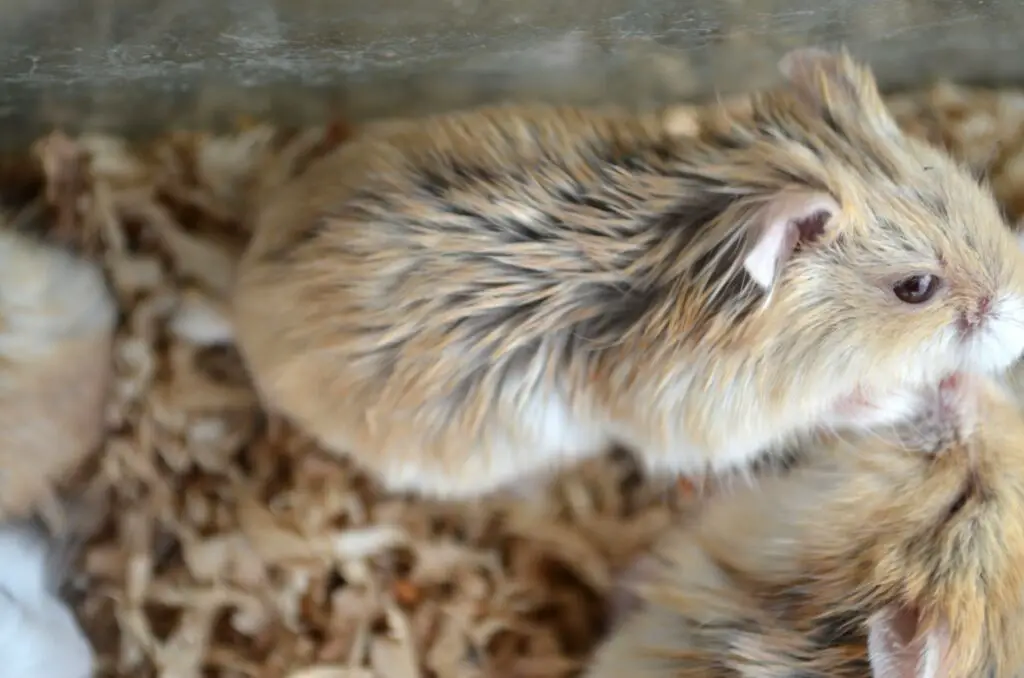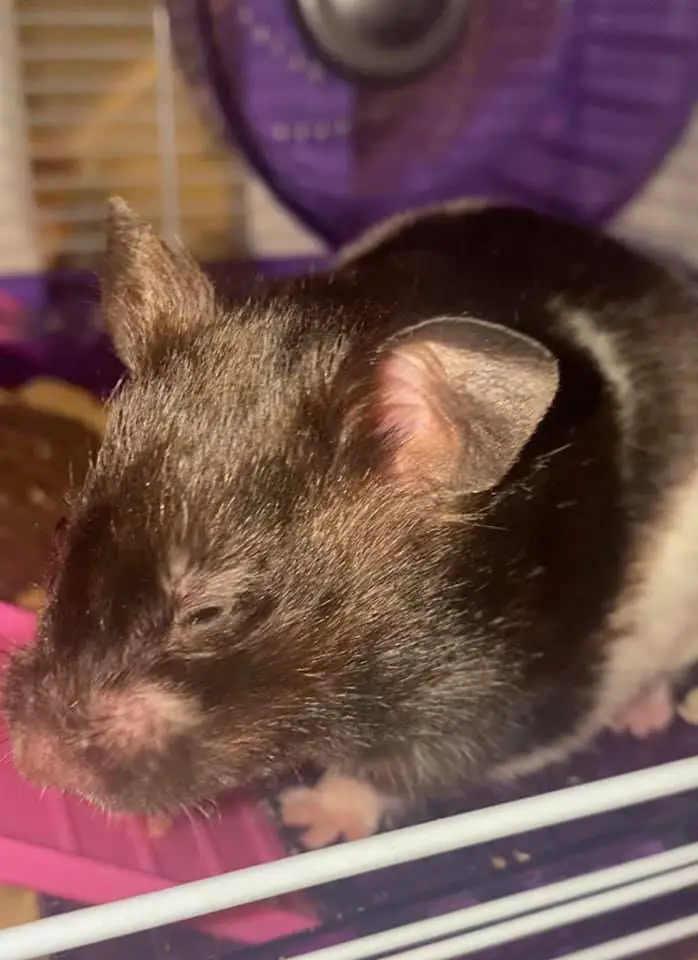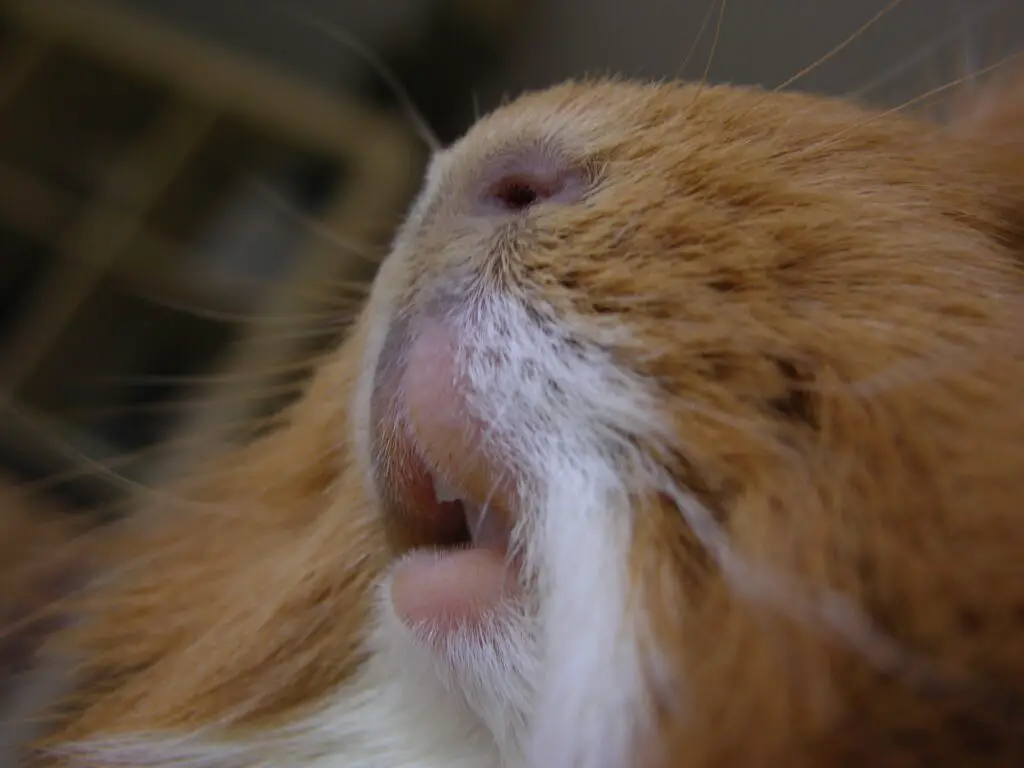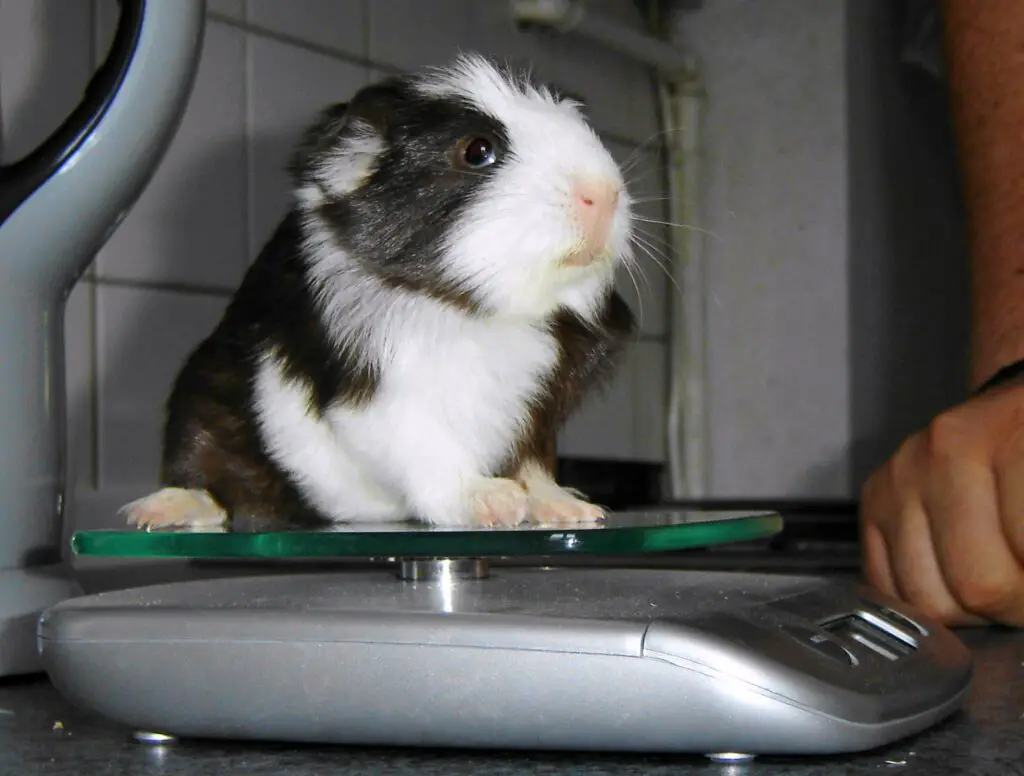Hamsters are one of the most popular small pets in the world. They are easy to care for and can be very entertaining. However, like all animals, hamsters can get sick.
In this blog post, we will discuss six common signs that your hamster might be sick. If you notice any of these signs, please take your hamster to a veterinarian immediately!
Key Takeaway
- If your hamster has a cold, they may exhibit signs including sneezing, a runny nose, half-closed watery eyes, a warm body temperature, excessive thirst, ears laid back, and decreased activity levels.
- If your hamster is sick, you should immediately isolate it from any other pets and consult with a veterinarian who specializes in small animals for professional medical advice.
- Caring for a sick hamster at home involves creating a comfortable and stress-free environment, ensuring they stay hydrated and nourished, administering any prescribed medication accurately, maintaining a clean habitat, and providing them with plenty of gentle care and attention.
- Humans can potentially get sick from hamsters as these pets can carry certain diseases, like Salmonella and lymphocytic choriomeningitis virus (LCMV), which are transmissible to people.
How To Tell If Your Hamster Has a Cold
If you think your hamster might be ill, it’s important to know the signs so you can get them the help they need. Here are six common signs that your hamster has a cold:
1. Watery eyes

Hamsters are susceptible to colds, just like humans. The main symptom of a cold is watery eyes. The tear ducts become inflamed or blocked when the hamster has a cold which causes them to become watery.
When a hamster has a cold, one of the most distinctive symptoms is watery eyes. This is caused by the same virus that causes the common cold in humans, and it leads to inflammation of the hamster’s respiratory system.
This can cause a runny nose and difficulty breathing, as well as watery eyes. In severe cases, the virus can even cause pneumonia.
If your hamster has a cold, the best thing you can do is provide plenty of fresh water and give them time to rest.
Colds typically last for a week or two and will resolve on their own. However, if your hamster’s condition does not improve or if they develop other symptoms, such as weight loss or lethargy, then it’s best to take them to the vet for an evaluation.
2. Matted fur

When a hamster gets cold, one of the most noticeable symptoms is that its fur becomes matted and clumped together.
This is because the hamster’s body is trying to conserve heat, and the matted fur provides insulation against the cold. In addition, the hamster’s immune system is working overtime to fight off the infection, and this can lead to a build-up of oils and sebum in the fur.
While it may not be the most attractive look, a hamster’s matted fur is actually a sign that they are fighting off an illness.
While matted fur on a hamster can be a sign of diarrhea, underlying skin condition, or just poor grooming habits, it is often a sign that the hamster is coming down with a cold.
This is an easy sign to notice because as you know hamsters are doing a great job at keeping their fur shiny and clean. If you notice a difference in their fur and overall look, look for further signs of illness.
3. Discharge from the eyes

When a hamster has a cold, one of the symptoms may be discharge from the eyes. This is caused by the presence of bacteria or viruses in the respiratory system, which can lead to inflammation and mucus production.
The discharge may be clear or yellowish, and it can cause the hamster’s eyes to appear watery or irritated. In some cases, the discharge may also be accompanied by sneezing or coughing.
If your hamster has a cold, it is important to keep its cage clean and dry to prevent the spread of infection. You should also consult with a veterinarian to discuss treatment options.
If you notice your hamster has discharge coming from its eyes, it’s important to take action right away. The first step is to gently wipe away any discharge with a clean, soft cloth. If the discharge is crusty, you can moisten the cloth with warm water to help loosen it.
Next, you’ll need to flush the eyes with a sterile saline solution. You can use an eye dropper or syringe to carefully squirt the solution into your hamster’s eyes. Be sure to do this slowly and gently, so as not to cause any discomfort.
Once the eyes have been flushed, you should apply a small amount of antibiotic ointment to help prevent infection. In the meantime, try scheduling an appointment with the vet to prescribe some medication for the cold.
4. Discharge from the nose

When a hamster has a cold, one of the symptoms may be a discharge from the nose. This is because the respiratory system is trying to clear out the mucus and other fluids that have built up due to the infection.
The discharge may be clear, white, or yellowish in color, and it may also be accompanied by sneezing and coughing. In severe cases, the hamster may also have difficulty breathing.
If your hamster has a cold, it is important to take them to the vet for treatment. In some cases, antibiotics may be necessary to clear the infection.
Additionally, you should provide your hamster with plenty of rest and make sure they are drinking plenty of fluids. By taking these steps, you can help your hamster recover from their cold quickly and safely.
5. Loss of appetite

Hamsters are prone to developing colds, which can lead to a loss of appetite. When a hamster has a cold, its body temperature drops and it becomes less active. As a result, the hamster may not feel like eating and may lose weight.
In addition, the cold can irritate the hamster’s throat and nose, making it difficult to eat. If your hamster has a cold, you can try feeding it small amounts of soft food or offering it water from a syringe. If your hamster does not recover quickly, you should take it to the vet for an examination.
A hamster with a cold needs to be fed a soft diet that is easy to digest. This can include cottage cheese, cooked eggs, yogurt, and mashed fruits and vegetables.
You should avoid feeding your hamster hard foods like pellets or seeds, as these can irritate their throat and make it difficult to eat. If your hamster is having trouble eating, you can also try offering them small amounts of water from a syringe or eyedropper.
6. Sniffling and sneezing

Hamsters are small, adorable creatures that make popular pets. They are relatively easy to care for, and they are fun to watch as they scurry around their cages.
However, hamsters can also get colds, just like humans. So why do these furry little animals sneeze and sniffle when they’re under the weather?
The common cold is caused by a virus, and there are many different types of viruses that can affect hamsters.
These viruses are spread through the air, and they can also be passed on from other animals (including humans). Once a hamster inhales the virus, it starts to multiply in its respiratory system. This can cause symptoms like sneezing, sniffling, and a runny nose. In severe cases, pneumonia can develop.
Fortunately, most colds in hamsters are mild and will clear up on their own within a few days. However, if your pet hamster is showing signs of a cold, it’s always best to take them to the vet for a check-up.
The vet can prescribe medication to help relieve the symptoms and prevent complications. With proper care, your hamster will be back to their playful self in no time!
What To Do If Your Hamster Is Sick
If your hamster is showing signs of illness, it’s crucial to take immediate steps to ensure their comfort and health, which include keeping them warm, encouraging food and water intake, looking for physical and behavioral changes, and seeking veterinary care.
Keep Your Hamster Warm
When hamsters are unwell, they tend to lose body heat. As a veterinarian, I frequently recommend using a hot water bottle wrapped in a blanket to provide warmth.
Make sure the temperature is comfortable for the hamster and not too hot. This helps to maintain their body temperature and can provide some comfort.
Encourage Food and Water Intake
Ill or injured hamsters might not show their usual interest in food or water. It’s vital to encourage them to eat and drink.
Sometimes, using a dropper can be helpful in getting them to take in liquids. In my practice, I’ve also suggested mixing medications with their favorite food to make the medicine more palatable.
Look for Physical and Behavioral Changes
Hamsters are experts at hiding their illnesses. However, physical signs like loss of fur, bumps, warts, swelling, or unusual discharge can indicate that something’s wrong.
Behavioral changes, such as sensitivity to light or decreased activity, are also potential signs of illness. In my years as a vet, I’ve learned to look for these subtle signs and advise pet owners to do the same.
How To Care For a Sick Hamster At Home
Caring for a sick hamster at home involves keeping the pet comfortable, ensuring it gets sufficient liquids and food, administering prescribed medication, maintaining a clean environment, and providing plenty of care and attention.
Providing Comfort
As a veterinarian, I’ve seen that one of the most crucial aspects of caring for a sick hamster is to provide comfort. This can be achieved by ensuring the hamster’s habitat is warm, quiet, and free from stressors. Soft bedding and familiar toys can also help make your hamster feel safe and secure during this time.
Ensuring Hydration and Nutrition
Hydration is critical for a sick hamster. Always keep a fresh source of water available and monitor its intake. If the hamster isn’t drinking enough, you may need to use a dropper to gently provide water. In terms of nutrition, continue to provide their regular diet, but consider supplementing with their favorite foods or treats to encourage eating.
Administering Medication
If a vet has prescribed medication, it’s important to administer it as directed. Hamsters can be reluctant to take medicine, so mixing it with their favorite food or using a syringe to slowly feed any liquid medication can be effective methods.
Maintaining Cleanliness
Keeping your hamster’s habitat clean is essential in preventing further health issues. Regularly change the bedding and clean the cage thoroughly. This includes removing any uneaten food and checking for signs of abnormal droppings.
Providing Care and Attention
Finally, offering lots of love and care can make a big difference. Spend time with your hamster, speak softly to it, and gently handle it if it’s up for it. Your presence can help reassure your pet and promote healing. Remember, every hamster is unique and may respond differently to various treatments. It’s always best to consult with a vet if you have any concerns about your hamster’s health.
When To Seek Veterinary Care For a Sick Hamster
Immediate veterinary attention is necessary if you notice any unusual symptoms or behaviors that suggest illness.
Hamsters are often perceived as low-maintenance pets, but they absolutely require veterinary care. It’s crucial to remember that they are living beings with health needs, not toys. Hamsters are usually shielded from many diseases by being in the safety of your home, but they are not immune to illnesses.
As a veterinarian, I have seen many cases where early detection and treatment significantly improved the pet’s prognosis.
It’s best to have your hamster examined by a vet within 48 hours of purchase. This initial check-up can help ensure that your new pet is healthy and free of any underlying conditions that might cause problems later on.
If you suspect that something is wrong with your pet, don’t hesitate to seek professional help. Hamsters depend on their owners to keep them safe, happy, healthy, and free from hunger and pain. Any signs of illness such as changes in behavior, eating habits, or physical appearance should prompt a visit to the vet.
In my experience, womb infections in hamsters can be treated with antibiotics, but it’s best if the hamster is strong enough to undergo surgery. Pyometra, a type of womb infection, can be particularly dangerous if left untreated says Small Pet Select.
Do Hamsters Have Snot?
Hamsters, like many other animals, should not typically exhibit any form of nasal discharge.
A healthy hamster maintains a high standard of grooming and would not normally have any signs of what might be considered ‘snot.
However, just like us humans, they may display symptoms similar to a common cold such as sneezing or a runny nose, which could be mistaken for ‘snot’.
From my own experience as a veterinarian, I’ve seen hamsters with a variety of symptoms including what their owners have worriedly described as ‘hamster snot’.
However, it’s essential to understand that any form of nasal discharge in hamsters – whether dry or wet – is usually indicative of an underlying issue. It could be a sign of a respiratory condition, or possibly an allergic reaction to something in their environment like their bedding or food.
In some cases, a hamster might sneeze due to a stray piece of dust in their nose. However, persistent sneezing or the presence of a ‘runny nose’ could suggest a more serious health concern such as a respiratory infection or even pneumonia.
If you notice your hamster exhibiting these symptoms, it’s best to seek immediate veterinary care. As a professional, I always advise pet owners to closely monitor their pets’ health and not to ignore any changes, no matter how minor they may seem says PetHelpful.
Can Humans Get Sick From Hamsters
Humans can indeed get sick from hamsters as these pets can carry various diseases that are transmissible to people, including Salmonella, lymphocytic choriomeningitis virus (LCMV), and others.
As a veterinarian, I’ve encountered cases where people contract diseases from their pet hamsters.
Hamsters, like any other pet, can harbor germs that can potentially make people sick. These zoonotic diseases include Salmonella, which can cause gastrointestinal problems, and lymphocytic choriomeningitis virus (LCMV), which typically causes flu-like symptoms.
While it’s not common, humans can become infected by breathing in dried particles of the hamster’s urine, feces, or saliva that have become airborne or by ingesting contaminated food.
However, it’s important to note that the risk is generally low, and the transmission of these diseases often occurs when basic hygiene practices are not followed.
For instance, washing hands thoroughly after handling a hamster or its cage can significantly reduce the risk. Also, keeping the hamster’s habitat clean and ensuring the hamster is healthy can further minimize the chances of disease transmission.
It’s also worth noting that not all hamsters carry these diseases. Hamsters are born ‘clean’ and only pick up diseases if exposed to them. Therefore, obtaining your hamster from a reputable source and providing appropriate veterinary care can help ensure your pet hamster remains disease-free.
FAQs
Q: Can hamsters hibernate?
A: No, hamsters do not hibernate. They are not capable of going into a deep hibernation like some other animals.
Q: How can I tell if my hamster is sick?
A: Some signs that your hamster may be sick include lethargy, loss of appetite, changes in behavior, and respiratory problems.
Q: What is wet tail in hamsters?
A: Wet tail is a condition that primarily affects Syrian hamsters and is characterized by diarrhea, wetness around the tail area, and a foul odor.
Q: Can hamsters catch colds?
A: Yes, hamsters can catch colds. They can be susceptible to respiratory infections, just like humans and other animals.
Q: What should I do if my hamster has a cold?
A: If your hamster has a cold, it is important to monitor their symptoms closely and provide them with a warm and comfortable environment. If their condition worsens or they show signs of distress, it is advised to take them to a veterinarian.
Q: Can a hamster’s cold be treated at home?
A: While some mild cases of hamster colds may improve with proper care, it is always best to consult a veterinarian for guidance to ensure proper treatment and recovery.
Q: What are common respiratory problems in hamsters?
A: Common respiratory problems in hamsters can include sneezing, wheezing, difficulty breathing, and nasal discharge.
Q: Can a tumor cause respiratory problems in a hamster?
A: Yes, tumors in the respiratory system can cause respiratory problems in hamsters. If your hamster is experiencing difficulties breathing, it is important to have them evaluated by a veterinarian.
Conclusion and final thoughts
In conclusion, it is important for pet owners to be able to recognize the symptoms of a cold in their hamsters.
By closely monitoring changes in behavior and physical appearance, as well as seeking veterinary care when necessary, you can ensure that your beloved furry friend receives the proper treatment and care.




